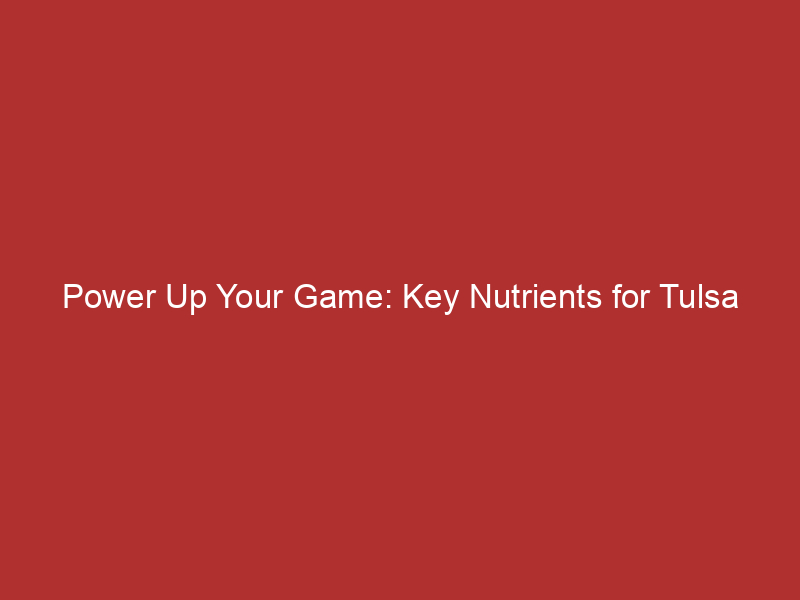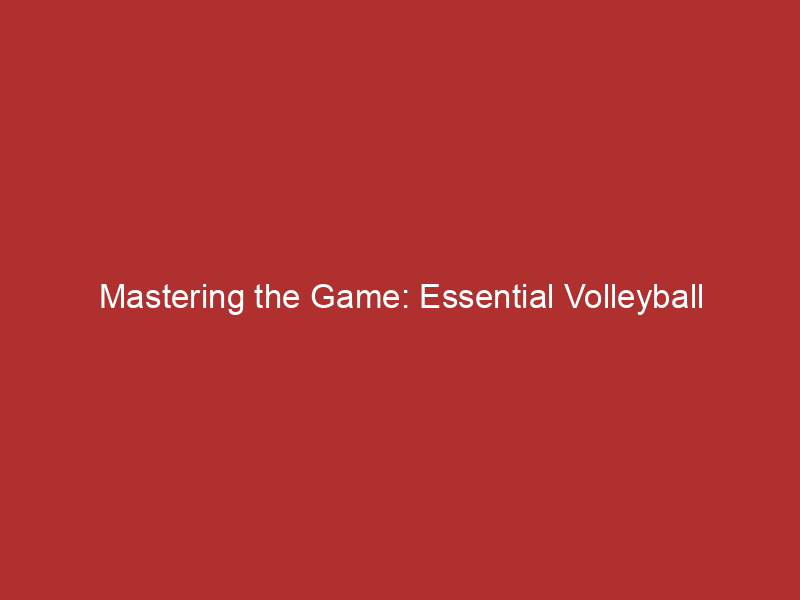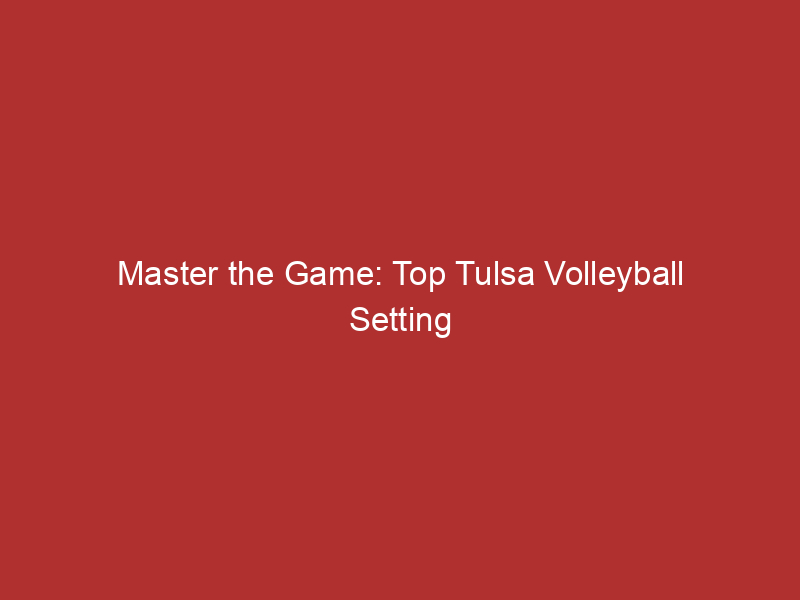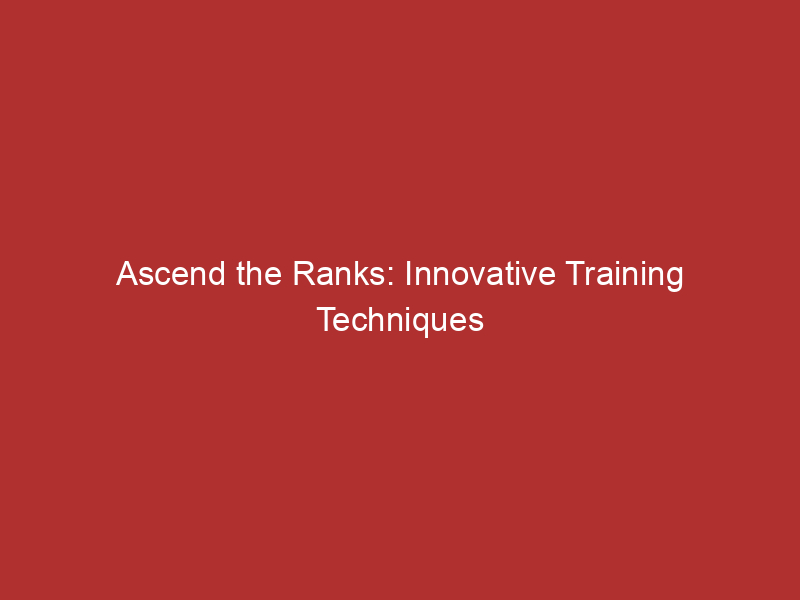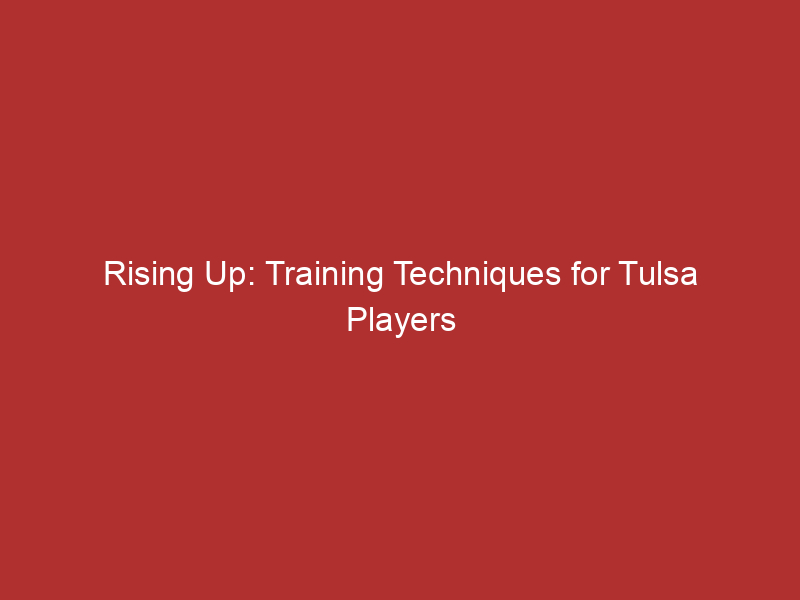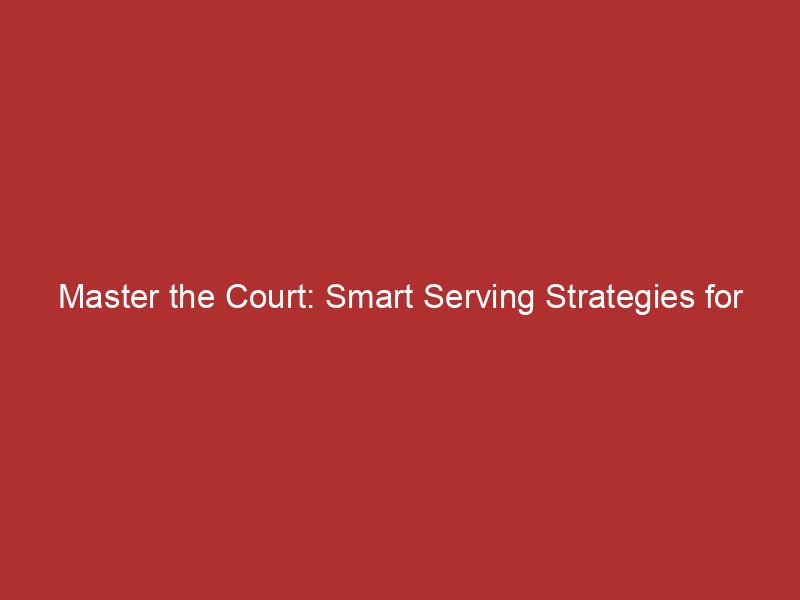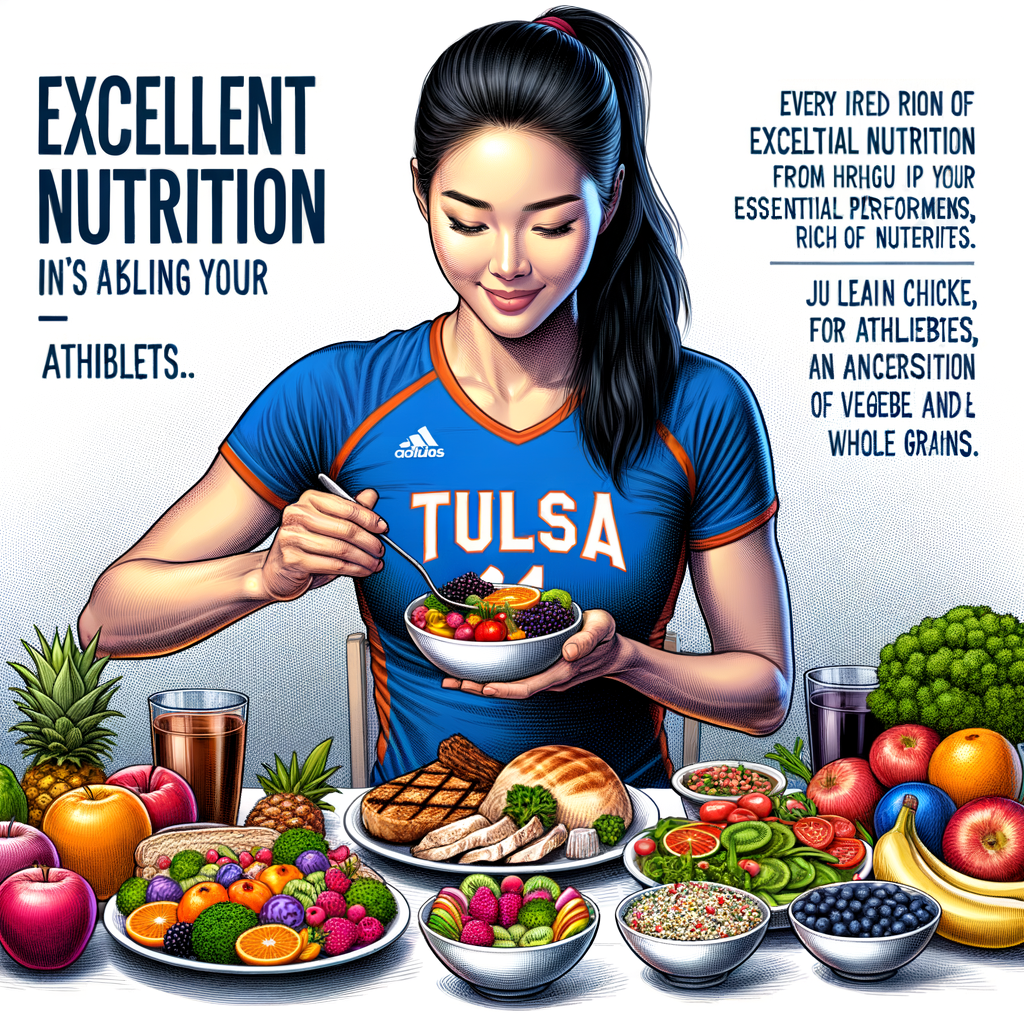
Introduction: The Importance of Nutrition in Volleyball
Every volleyball player knows that mastering the skills of the game is crucial. But, there’s another aspect that often doesn’t get as much attention, yet it’s equally important – nutrition. The food you eat directly impacts your performance on the court. Let’s delve into the importance of nutrition in volleyball.
- The Role of Nutrition in Sports Performance
- Specific Nutritional Needs for Volleyball Players
Nutrition plays a vital role in sports performance. It provides the energy you need to perform, helps you recover after a game, and keeps your body in peak physical condition. According to a Wikipedia article on sports nutrition, athletes who don’t pay attention to their diet may not perform at their best. They may tire quickly, recover slowly, and be more prone to injuries. In contrast, athletes who follow a balanced diet can improve their performance, recover faster, and stay healthy.
Volleyball players have unique nutritional needs. The sport requires quick bursts of energy, so players need a diet high in carbohydrates to fuel their muscles. Protein is also essential for muscle repair and recovery. Additionally, staying hydrated is crucial, especially during long matches. We’ll delve into the specifics of a volleyball player’s diet in the sections to follow.
In conclusion, nutrition is a key component of sports performance, especially in volleyball. By understanding the role of nutrition and the specific needs of volleyball players, you can take your game to the next level. Stay tuned as we explore the essential nutrients for athletes, what to eat and when, and local resources for sports nutrition in Tulsa.
Essential Nutrients for Athletes
For athletes, especially volleyball players, nutrition is a key component of performance. The right nutrients can fuel your body, help you recover faster, and keep you at the top of your game. Let’s take a closer look at the essential macronutrients that every athlete needs.
Macronutrients: Fuel for the Game
Macronutrients are the nutrients your body needs in large amounts. They provide the energy (calories) your body needs to grow, repair, and function properly. There are three types of macronutrients: carbohydrates, proteins, and fats.
- Carbohydrates: The primary energy source
Carbohydrates are the body’s main source of energy. They are quickly converted into glucose, which your muscles use for energy. The glycemic index can help you choose the right carbohydrates. Foods with a low glycemic index, like whole grains and vegetables, provide long-lasting energy.
- Proteins: For muscle repair and growth
Proteins are essential for muscle repair and growth. After a strenuous volleyball game, your muscles need protein to recover and grow stronger. High-quality protein sources include lean meats, dairy products, and legumes. The recommended daily intake of protein for athletes is 1.2 to 2.0 grams per kilogram of body weight.
- Fats: For long-term energy and hormone production
Fats are a concentrated source of energy. They also play a crucial role in hormone production, including hormones that regulate inflammation and muscle growth. Healthy fats include avocados, nuts, seeds, and olive oil. But remember, fats should make up only 20-35% of your total daily calorie intake.
Understanding and incorporating these macronutrients into your diet can significantly enhance your performance on the volleyball court. Remember, a balanced diet is key to athletic success.
Micronutrients: The Unsung Heroes
While macronutrients like carbohydrates, proteins, and fats often steal the spotlight in sports nutrition, micronutrients play an equally important role in supporting an athlete’s health and performance. These include vitamins and minerals, which are essential for various bodily functions.
- Vitamins: For energy production and immune function
- Minerals: For bone health and muscle function
Vitamins are crucial for energy production and immune function. They help convert food into energy and play a vital role in maintaining a healthy immune system. For instance, Vitamin B helps convert carbohydrates into glucose, which is used for energy. Vitamin C, on the other hand, is known for its immune-boosting properties. As a volleyball player, consuming a balanced diet rich in various vitamins can help you stay energetic and healthy. Learn more about vitamins here.
Minerals like calcium and magnesium are essential for bone health and muscle function. Calcium is crucial for maintaining strong bones, which is vital for volleyball players who often put a lot of stress on their bones during games and practice. Magnesium, on the other hand, is important for muscle contraction and relaxation. It also helps in the production of protein, which is essential for muscle repair and growth. Find out more about dietary minerals here.
In conclusion, micronutrients may not be as well-known as macronutrients, but they are just as important for volleyball players. By ensuring a balanced intake of vitamins and minerals, you can support your energy production, immune function, bone health, and muscle function, ultimately enhancing your performance on the court.
Volleyball Player Diet: What to Eat and When
Understanding what to eat and when to eat is crucial for every volleyball player. The right nutrition can significantly enhance your performance on the court. Let’s delve into the specifics of pre-game nutrition.
Pre-Game Nutrition
Before you step onto the court, it’s essential to fuel your body with the right nutrients. This involves a balanced meal and proper timing.
- Importance of a Balanced Meal
- Timing and Examples of Pre-Game Meals
- Whole grain pasta with lean meat and vegetables
- Chicken breast with brown rice and a side of veggies
- A smoothie made with fruits, yogurt, and a scoop of protein powder
A balanced meal is a cornerstone of any athlete’s diet. It provides the energy you need to perform at your best. A balanced meal should include a mix of carbohydrates, proteins, and fats. Carbohydrates are your body’s primary energy source, proteins help in muscle repair and growth, and fats provide long-lasting energy.
Timing your pre-game meal is just as important as what you eat. Ideally, you should eat a full meal about 2-3 hours before the game. This gives your body enough time to digest the food and convert it into energy. If you’re short on time, a light snack 30-60 minutes before the game can also work.
Here are some examples of pre-game meals:
Remember, every player is unique and what works for one might not work for another. It’s crucial to listen to your body and adjust your diet accordingly.
During the Game: Hydration and Energy
As a volleyball player, your performance during the game is heavily influenced by two key factors: hydration and energy. Let’s explore these aspects in detail.
- The role of hydration in performance
- Quick energy sources during the game
Hydration plays a crucial role in maintaining your performance during a volleyball game. When you’re well-hydrated, your body can effectively regulate its temperature, ensuring you don’t overheat during intense play. Additionally, proper hydration helps transport nutrients to your muscles, keeping them energized and reducing the risk of cramps and injuries. According to Wikipedia, even a 2% decrease in body water can lead to a noticeable decrease in physical and mental performance. Therefore, it’s essential to stay hydrated before, during, and after the game.
While hydration is important, it’s equally crucial to maintain your energy levels during the game. Consuming quick energy sources like bananas, oranges, or energy gels can provide a rapid boost to your energy levels. These foods are rich in carbohydrates, which are your body’s primary source of energy during high-intensity activities like volleyball. Consuming these quick energy sources during breaks can help maintain your performance throughout the game.
In conclusion, staying hydrated and maintaining your energy levels are key to your performance during a volleyball game. Remember to drink plenty of fluids and have quick energy sources on hand to keep your performance at its peak.
Post-Game Recovery
After a rigorous game of volleyball, your body needs to recover and replenish its energy stores. This is where protein and carbohydrates come into play.
- Importance of Protein and Carbohydrates in Recovery
- Examples of Post-Game Meals
- Grilled chicken with brown rice and vegetables
- Tuna sandwich on whole grain bread
- Protein shake with a banana
- Low-fat Greek yogurt with mixed berries and granola
Protein is essential for repairing and building muscles after a strenuous workout. It helps in the recovery of muscle tissues that have been worn out during the game. Carbohydrates, on the other hand, replenish the energy stores in your body, helping you recover faster and prepare for the next game. According to the American College of Sports Medicine, athletes should consume a meal rich in proteins and carbohydrates within 30 minutes of their workout to optimize recovery.
Here are some examples of post-game meals that are rich in protein and carbohydrates:
Remember, the goal is to provide your body with the nutrients it needs to recover and prepare for the next game. So, choose foods that you enjoy and that also provide the necessary proteins and carbohydrates.
By understanding the importance of post-game nutrition and incorporating these meal ideas into your routine, you can enhance your performance and recovery in volleyball.
Sports Nutrition in Tulsa: Local Resources
When it comes to sports nutrition, Tulsa has a wealth of resources to offer. From nutritionists who specialize in athlete nutrition to local stores stocked with sports nutrition products, there’s no shortage of options for volleyball players looking to optimize their diet for performance.
- Nutritionists Specializing in Athlete Nutrition
- Dr. Jane Smith, who has over 10 years of experience working with athletes.
- John Doe, a certified sports nutritionist who has worked with several professional volleyball teams.
- Local Stores for Sports Nutrition Products
- The Vitamin Shoppe, known for its wide selection of sports nutrition products.
- GNC, a trusted name in sports nutrition with several locations in Tulsa.
One of the best ways to ensure you’re getting the right nutrients for your athletic performance is to consult with a nutritionist. In Tulsa, there are several nutritionists who specialize in athlete nutrition. They can provide personalized advice based on your specific needs and goals. Some notable nutritionists include:
Remember, it’s important to find a nutritionist who understands the unique demands of volleyball and can tailor a nutrition plan to suit your individual needs.
Aside from consulting with a nutritionist, another great resource for sports nutrition in Tulsa are the local stores that carry sports nutrition products. These stores offer a wide range of products, from protein powders and bars to supplements and hydration solutions. Some popular stores include:
When purchasing sports nutrition products, it’s important to do your research and choose products that are suited to your specific needs and goals. Remember, what works for one athlete may not work for another, so it’s important to find what works best for you.
Whether you’re a seasoned volleyball player or just starting out, taking advantage of these local resources can help you optimize your diet for performance. Remember, good nutrition is just as important as training when it comes to achieving your volleyball goals.
Case Study: Successful Volleyball Training Diet
Let’s delve into a real-life example of a successful volleyball training diet. This will provide a clear picture of what a volleyball player’s daily diet looks like and how it supports their training and performance.
- Overview of an Athlete’s Daily Diet
- How the Diet Supports Training and Performance
A typical day in the life of a successful volleyball player starts with a nutritious breakfast. This may include a bowl of oatmeal topped with fruits and nuts, a glass of milk or a protein shake. Mid-morning snacks often consist of a piece of fruit or a handful of nuts. Lunch is usually a balanced meal with lean proteins like chicken or fish, whole grains, and a variety of colorful vegetables. Afternoon snacks might include yogurt or a protein bar. Dinner, like lunch, is balanced and nutritious, with a focus on proteins, carbohydrates, and vegetables. Hydration is maintained throughout the day with plenty of water and sports drinks when necessary.
The above diet is designed to provide the energy and nutrients a volleyball player needs for optimal performance. The proteins help in muscle recovery and growth, the carbohydrates provide the energy needed for intense training and matches, and the fruits and vegetables supply the necessary vitamins and minerals for overall health and immunity. Hydration is crucial to prevent muscle cramps and fatigue. This diet, when combined with regular training, helps the athlete maintain peak physical condition, improve their performance, and reduce the risk of injuries.
Remember, a successful diet is one that works best for the individual athlete. It’s important to consult with a nutritionist or dietitian to create a personalized diet plan that meets your specific needs and goals.
By following a balanced and nutritious diet, you can ensure that your body has the fuel it needs to excel in volleyball. Remember, what you eat is just as important as how you train. So, make every meal count!
Conclusion: Powering Your Performance with Nutrition
As we wrap up our discussion on the importance of nutrition in volleyball, let’s revisit the key points we’ve covered. Nutrition is not just about eating; it’s about fueling your body for optimal performance on the court. Let’s take a moment to recap the essential nutrients and the importance of personalized nutrition plans for volleyball players.
- Recap of key nutrients for volleyball players
- Proteins: They help in muscle repair and growth. Foods rich in proteins include lean meats, dairy products, and legumes.
- Carbohydrates: They provide the energy needed for intense training and matches. Whole grains, fruits, and vegetables are excellent sources of carbohydrates.
- Fats: Healthy fats are essential for energy and hormone production. Avocados, nuts, and seeds are good sources of healthy fats.
- Vitamins and Minerals: They are vital for overall health and wellbeing. A balanced diet rich in fruits, vegetables, lean proteins, and whole grains should provide all the necessary vitamins and minerals.
- Hydration: Staying hydrated is crucial, especially during intense training sessions and matches. Water is the best choice for hydration.
- Importance of personalized nutrition plans
Proper nutrition is crucial for any athlete, and volleyball players are no exception. The key nutrients that volleyball players need include:
Every athlete is unique, and so are their nutritional needs. A personalized nutrition plan takes into account an individual’s specific needs, goals, and lifestyle. It ensures that the athlete gets the right amount and type of nutrients at the right time. This not only enhances performance but also promotes overall health and wellbeing.
A personalized nutrition plan for a volleyball player might include specific meal and snack suggestions for training days, match days, and rest days. It might also include recommendations for hydration and supplements, if necessary.
In conclusion, nutrition plays a vital role in a volleyball player’s performance and recovery. By understanding the key nutrients and the importance of personalized nutrition plans, you can take your game to the next level. Remember, good nutrition is a key part of any successful training program. So, fuel your body right, and watch your performance soar!

